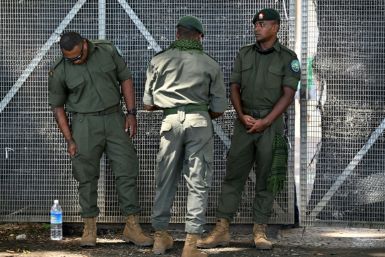Australian Mining Sector Warned Of Iron Ore Price Fall For The Second Half Of 2013
The Australian mining sector has been warned of iron ore price fall in the next six months.
This was expressed by Ansteel, one of the top five steel makers in China, as it also underscored the current struggles of the Chinese steel industry to prevent losses.
In his interview with the London Financial Times, Ansteel Chairman Zhang Xiaogang said that the predicted average price of iron ore for the second half of 2013 would be between $US110 and $US120 per tonne.
This statement of decrease in the prices of iron ore does not bode well for Australia's most profitable export.
Mr. Zhang, however, says it is a prudent move to ensure the stability and profitability of the Chinese steel industry.
"Some people will collapse during this war of attrition if their cash flow dries up, or if they can't make any money at all," he said. The Ansteel chairman believes that the lowering of prices today is necessary to prepare Chinese steel companies for the long-term struggle ahead.
Mr. Zhang's projection is actually shared by Australia's own iron ore exporters and concerned government agencies.
Even Fortescue Metal Group, widely known as the most bullish industry player in Australia, predicted at the start of 2013 that average price of iron ore would be around $US120 a tonne during the year.
A slight upgrade was made in April by Fortescue chief Nev Power. He predicted that "for the foreseeable future," iron ore would most likely trade between $US120 and $US130 per tonne. But even then, rival predictions are within close difference from each other.
The projection of the Bureau of Resources and Energy Economics was also very close to that of Ansteel and Fortescue. In March, it predicted the average price of iron ore to be around $US119 a tonne this year.
In recent years, the market has seen iron ore prices in seasonal trends. Record lows are typically seen around the months of August and September, while peak prices are usually achieved in the first quarter of the year.
Most experts say, however, that the prices of iron ore will no longer be higher than its achieved peak in the past. They say it is because of China's demand for the commodity moving at a slower pace.
If that is the case, it is rather unfortunate since Australia's iron ore supply is growing significantly. Because of Australia miners' expansion programs, there are more iron ore supplies just waiting to be exported.






